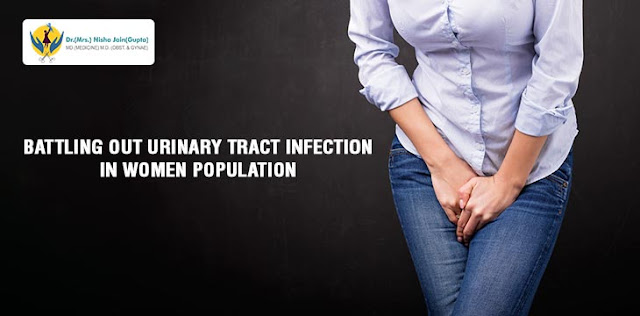High-Risk Pregnancy : Identity What To Suspect
Having a baby is a very straightforward and fulfilling activity for a
woman. But all the reproductions are not very permanent. Some have
complexities with mother, baby or both and are introduced as High Risk
Pregnancy. Such circumstances occur around 5 to 10 percent and require
control by able specialists at a well-equipped clinic for safe delivery.
It can be grouped as pre-existing factors, pregnancy-specific factors
and factors provoked by pregnancy.
Regular Antenatal Care – we have now come a great way in the high-level care of the pregnant woman and many complexities can be circumvented with regular attention. Take all medications frequently, do not avoid your appointment with the doctor. All inspections should be done on time because several experiments are done according to the gestational age of the fetus. Communicate any unusual and distressing symptoms to the doctor. You should eat healthily, avoid undesirable weight accumulation and activity.
Eat A Salubrious Diet – During pregnancy, you’ll require more folic acid, protein, calcium, and iron. A regular prenatal vitamin can assist fill any breaks. Talk to your wellness care provider if you have specific nutrition requirements due to a health situation, such as diabetes.
Gain Weight Carefully – Getting the right quantity of weight can help your baby’s well-being and make it more comfortable to discard the extra pounds after childbirth. Operate with your health care provider to discover what’s best for you.
Evade Hazardous Elements – If you drag, quit. Alcohol and illegal opiates are off-limits, too. Get your health care provider’s ok before you commence or discontinue exercising any medications or supplements.
Specific Or Targeted Ultrasound – This type of fetal ultrasound an imaging procedure utilizes high-frequency sound waves to create images of a baby in the uterus, targets a presumed problem, such as unusual growth.
Amniocentesis – Throughout this method, a sample of the fluid that encloses and preserves a baby during pregnancy (amniotic fluid) is removed from the uterus. Typically performed after week 15 of pregnancy, amniocentesis can recognize certain genetic ailments, as well as neural tube flaws serious malformations of the brain or spinal cord.
Content Source : https://www.drnishajain.com/high-risk-pregnancy-identity-what-to-suspect/
Pre-Existing Factors In High-Risk Deliveries
Pre-existing factors include Age risk- adolescent mothers or mums over 35 years. Other factors include the medical conditions of mothers who have high BP, cardiac disease, diabetes, kidney problem, autoimmune disease, anemia, hormonal disorder, overweight problem, epilepsy, infections, etc can generate complexities. Those mothers who are in the habit of smoking, alcohol or drug use also impact the risk areas in delivery episodes.Pregnancy Specific Factors
Pre-clampsia is a multiorgan symptom in which mothers can abruptly develop high BP, urinary protein and swelling of the body. It is very serious and needs permission and institutional confinement for optimal outcomes. Gestational diabetes is a disorder of blood sugar in pregnancy and normally fixes after delivery. Other miscellaneous ailment includes multiple pregnancies, preterm labor, previous LSCS, placenta previa, bad obstetric history, IUGR, Rh negative, a previous baby with genetic disorder, etc.How To Deal With High Risk Pregnancy?
Pre-Conceptional Counseling – Discussing with your doctor before converting pregnant is necessary to detect and treat certain disorders. The doctor will take a customary history, physical testing and conduct certain searches. Many complications like high BP, deranged sugars, anemia, infections, thyroid problems can be diagnosed and controlled. Rubella status can be identified. Folic acid sequels are started to check many nervous system diseases in the fetus. Dietary counseling for proper nutrition and weight management. Genetic counseling if required.Regular Antenatal Care – we have now come a great way in the high-level care of the pregnant woman and many complexities can be circumvented with regular attention. Take all medications frequently, do not avoid your appointment with the doctor. All inspections should be done on time because several experiments are done according to the gestational age of the fetus. Communicate any unusual and distressing symptoms to the doctor. You should eat healthily, avoid undesirable weight accumulation and activity.
Eat A Salubrious Diet – During pregnancy, you’ll require more folic acid, protein, calcium, and iron. A regular prenatal vitamin can assist fill any breaks. Talk to your wellness care provider if you have specific nutrition requirements due to a health situation, such as diabetes.
Gain Weight Carefully – Getting the right quantity of weight can help your baby’s well-being and make it more comfortable to discard the extra pounds after childbirth. Operate with your health care provider to discover what’s best for you.
Evade Hazardous Elements – If you drag, quit. Alcohol and illegal opiates are off-limits, too. Get your health care provider’s ok before you commence or discontinue exercising any medications or supplements.
Special Tests For High Risk Deliveries
If you have a high-risk pregnancy, you might think of various tests or modes in an attachment to routine prenatal screening tests. Depending on the conditions, your doctor might suggestSpecific Or Targeted Ultrasound – This type of fetal ultrasound an imaging procedure utilizes high-frequency sound waves to create images of a baby in the uterus, targets a presumed problem, such as unusual growth.
Amniocentesis – Throughout this method, a sample of the fluid that encloses and preserves a baby during pregnancy (amniotic fluid) is removed from the uterus. Typically performed after week 15 of pregnancy, amniocentesis can recognize certain genetic ailments, as well as neural tube flaws serious malformations of the brain or spinal cord.
Reference
If you are above 35 years and come under the category of high-risk delivery, try meeting Dr. Nisha Jain, the best infertility doctor in Delhi.Content Source : https://www.drnishajain.com/high-risk-pregnancy-identity-what-to-suspect/




Comments
Post a Comment